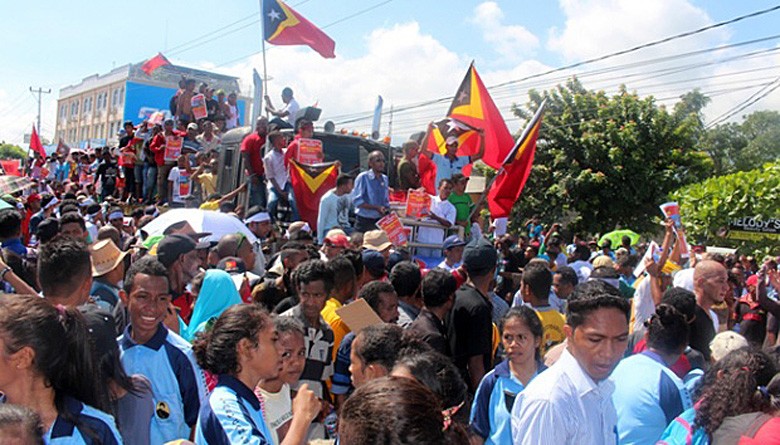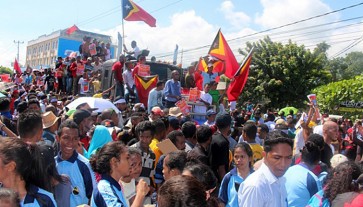Popular Reads
Top Results
Can't find what you're looking for?
View all search resultsPopular Reads
Top Results
Can't find what you're looking for?
View all search resultsTimor Leste: Colonial past and neocolonial present
One way or another, Timor Leste remains unable to unchain itself from the colonial grip and its proxies. The country has a long history of colonialism, fought it relentlessly and won, but unfortunately has to encounter new forms of colonialism in the political and economic realms.
Change text size
Gift Premium Articles
to Anyone
O
n Friday, the people of Timor Leste will commemorate the 20th anniversary of the popular consultation, through which the nation restored the independence it had prematurely declared in 1975. An election was held, a new president elected, new legislative members put in place and a new government sworn in as the Democratic Republic of East Timor once again came into existence following the historic referendum of 1999.
Those ceremonial sequences marked an end to colonial rule (by Portugal for 450 years and Indonesia for 24 years) over East Timor.
A common historic feature of postcolonial countries in Africa, Asia and Latin America is that independence does not necessarily mean that a former colony is free from its former master. Timor Leste is still heavily dependent on Indonesia in many ways, including trade.
However, an independent Timor Leste has also become “a heaven” for Indonesian construction and banking industry players. State-owned lenders Bank Rakyat Indonesia and Bank Mandiri are operating in Timor Leste.
In his courtesy visit to Jakarta in 2015, then-prime minister Rui Maria Araujo told Indonesian media that Indonesia had “contributed positively to East Timor’s economic development,” citing 400 private Indonesian companies that were present in the small country.
The looming large of the Indonesian corporations, however, has sparked allegations of collusive practices between Indonesian businessmen and local compradors, who include veterans of the war, government officials as well as members of Parliament. “Flight tickets to Bali, luxury hotels and deals behind the bar,” a researcher named the incentives fueling the alleged hanky-panky.
Ahead of the celebration, East Timor independence leader Xanana Gusmao gave the country another shock as he decided to name a new bridge at the heart of Dili after Indonesia’s third president BJ Habibie. The decision aroused criticism mainly from civil society organizations and survivors of Indonesia’s colonial rule. Worse, residents were evicted to pave the way for the bridge’s construction.


















